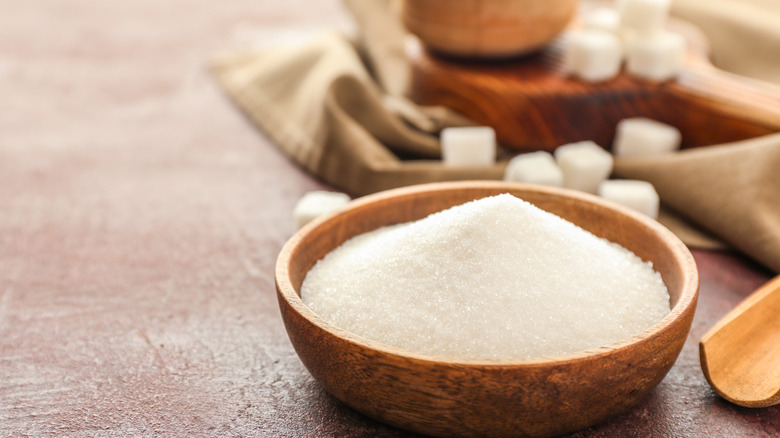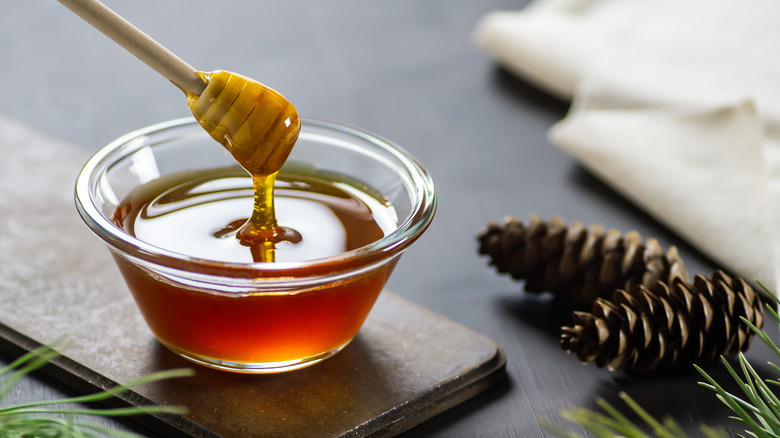Does Sugar Cause Inflammation?
Many of us know that reducing sugar intake is important for a healthy diet and one of the biggest reasons may point to inflammation. Inflammation is our body's natural defense system to foreign invaders. Thus, whenever we consume something our body considers a foreign invader, it can trigger an immune response called inflammation. Acute instances of inflammation aren't necessarily dangerous, but rather, ongoing inflammation over time can tax our body's defense systems and put us at greater risk for chronic conditions and diseases like cancer, heart disease, diabetes, and even depression, to name a few (via Harvard Health Publishing). Many foods in our standard American diet can lead to chronic inflammation, particularly sugar and refined carbohydrates. As such, experts recommend avoiding processed foods with added sugar and sugar-laden beverages as much as possible. Harvard School of Public Health suggests we get into the habit of reading nutrition labels and limit sugar consumption to no more than 4 grams, or 1 teaspoon, per day. For context, the average American consumes about 22 teaspoons of added sugar, or roughly an extra 350 calories from processed and refined foods.
Are some sugars healthy?
Unfortunately, it can be hard being a consumer sometimes and knowing how to spot added sugar. Harvard School of Public Health listed 22 sugar aliases that may pop up on nutrition labels, including honey, molasses, and maple syrup. These kinds of sugars are often touted for their health benefits, but are they inflammatory? Let's first start by taking a look at honey. Honey seems to have an endless supply of health benefits, including anti-inflammatory effects. However, too much honey consumption can tip the scale in the other direction and actually cause inflammation, due to the fact that honey is still an added sugar. While it does contain other valuable minerals, too much can be as similarly harmful as too much cane sugar. Thus, it's important to remember that just because a sugar comes from a natural source, does not mean too much of it won't negatively impact our health. When eating any added sugar, despite its health claims and benefits, eating more than the "added sugar" recommendations can cancel out many of the health benefits we are aiming to achieve, including anti-inflammatory benefits
Natural sugar and inflammation
Naturally occurring sugars provide important health benefits, but researchers suggest they should still be eaten in moderation. Fruit, for example, can have high amounts of fructose. But in addition to the fructose, it also contains other valuable nutrients as well as fiber, which tends to help curb sugar absorption early in the digestive process, via Time. Studies have shown that diets rich in fiber have lower C-reactive protein levels in their blood, a common inflammatory marker, via Arthritis Foundation. One caveat to fruit consumption, however, is juice. When you juice fruit, you're stripping away the pulp and fiber source. Additionally, in order to yield a single serving of juice, you need more than what you'd likely eat of the whole foods version in one sitting. This can make the sugar content of a single juice serving more highly concentrated. Experts recommend whole fruit intake should make up no more than 30% of one's diet, via Cleveland Clinic.


